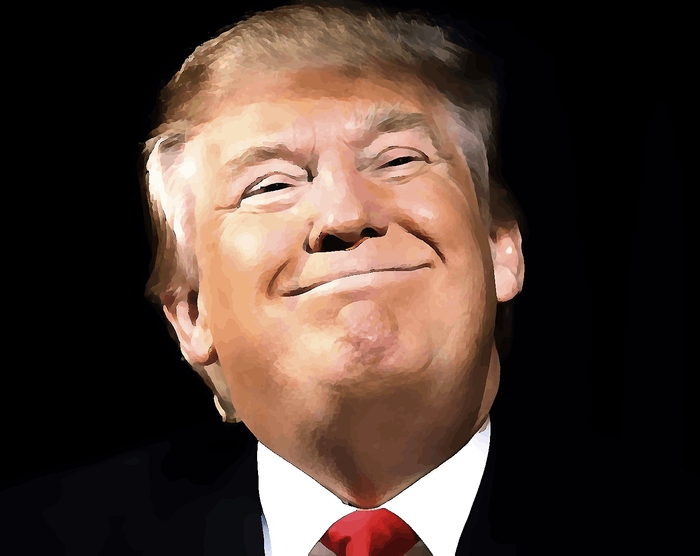
Great oratory, like great preaching, has gone out of style. Stump speakers rant, rave and repeat market-tested insult ("lock her up!") and try to entertain with quips that are rarely actually quips, only the repetition of partisan cliches denouncing "Democraps" and "Rethuglicans."
This passes for wit on social media, but very little on social media will be read by anyone in future but researchers looking for clues to how and why so many otherwise intelligent people lost their minds in the rhetorical tumult of the first decades of our era.
"To outsiders," writes Bryan Clark on thenextweb.com, a political website, "President Trump's brazen speech and unconventional style may make him seem like an outlier, the sum of leftover parts assembled by an [angry] populace.
But for one group of researchers, Trump's idiosyncrasies aren't so much a departure from societal norms as they are a continuation of a trend dating back more than a century."
It's true that the Donald is unlike any president before him. Let us not count the ways here. He never bores anybody and that can't be said about most politicians in town. There's lots of disagreement about the president among his millions of constituents but there's ample agreement that he speaks in a simple, straightforward manner, saying what he thinks with absolute confidence that he's right. This is what infuriates his foes, cheers his friends and fascinates researchers.
Some of those researchers at the University of Texas are trying to figure out whether Mr. Trump is "a major deviation" from previous leaders in his linguistic and thinking style, or alternatively, whether he is in line with broader psychological shifts in leadership speech both within the United States and in other English-speaking countries. It's a major deconstruction project.
Nearly everyone agrees – even those who suffer Trump Derangement Syndrome and think he is a spawn of Satan – that his plain speech about plain issues is the key to his popularity. He uses rough speech like he might have learned from carpenters, hod carriers and bricklayers building one of his Trump towers, never concerned about giving himself a rabbit hole or other cover for retreat. This takes him into places nobody else would go, such a fight with a dead man (John McCain), or intervening in a fuss between a man and his wife (Kelly Anne Conway and her husband John) because such attempted intervention is grossly impolite and probably impolitic, too, and a busybody's foolish errand, since an outsider never knows what he's talking about. But whatever the Donald's faults may be, a lack of confidence to go where other men won't, is clearly not one of them.
The spine-tingling eloquence of Winston Churchill's most memorable lines ("We will fight on the beaches") were a reflection of his famous formula that "short words are best, and old words when short are best of all." Franklin Delano Roosevelt's calling the nation to war the day after Pearl Harbor (". . . December 7, 1941, a date that will live in infamy . . . ") was all the more memorable for its economy of words. Economy of words is now held, particularly in the nation's capital, as an exercise of further infamy.
Kayla Jordan, one of the Texas researchers, observes that some leaders communicate their ideas formally and focus on ideas and concepts (high analytic) and others, like Donald Trump, and Ronald Reagan before him, talk about their ideas informally, and focus on people (low analytic).
This isn't necessarily a bad thing, but successful politicians talk to people in their own idiom (and would never use a word like "idiom" in public). They speak with low analytics but high confidence. The researchers find that politicians abroad are following the Trump examples.
Looking to see whether the effect is seeping into the national consciousness, and is not isolated in politics, researchers sampled 5,400 English-language novels written since 1789, studied 11,921 texts of movie subtitles between 1930 and 2014, and, gluttons for punishment, looked at more than 2 million articles in The New York Times.
The correlation is weak. Politicians may not be as influential as they think they are. And that's the good word.
Every weekday JewishWorldReview.com publishes what many in the media and Washington consider "must-reading". Sign up for the daily JWR update. It's free. Just click here.
(COMMENT, BELOW)
JWR contributor Wesley Pruden is editor emeritus of The Washington Times. His column has appeared in JWR since March, 2000.


 Contact The Editor
Contact The Editor
 Articles By This Author
Articles By This Author